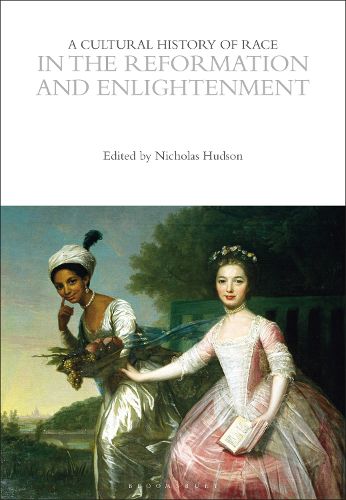Readings Newsletter
Become a Readings Member to make your shopping experience even easier.
Sign in or sign up for free!
You’re not far away from qualifying for FREE standard shipping within Australia
You’ve qualified for FREE standard shipping within Australia
The cart is loading…






The period between the 16th and 18th centuries witnessed the expansion of European travel, trade and colonization around the globe, resulting in greatly increased contact between Westerners and peoples throughout the rest of the world. With the rise of print and the commercial book market, Europeans avidly consumed reports of the outside world and its various peoples, often in distorted or fictional forms. With the consolidation of new empirical science and taxonomy, prejudice against peoples of different colours and cultures during the 16th and 17th centuries became more systematic, giving rise to the doctrines of race 'science.' Although humanitarianism and the idea of human rights also flourished, inspiring the campaign to abolish the slave trade, this movement did not hinder imperialist expansion and the belief that humans could be ranked in a hierarchy that authorized White domination.
The essays in this volume trace the complex pattern of intellectual and cultural change from popular bigotry in the Age of Shakespeare to the racial categories developed in the works of Buffon and Kant. These essays also link changes in racial thinking to other trends during this age. The development of modern ideas of race corresponded with emerging conceptions of the nation state; new acceptance of religious diversity became linked with speculations on racial diversity; transforming ideologies of gender and sexuality overlapped in crucial ways with developing racial attitudes. In many ways, the period between the Reformation and Enlightenment laid the foundations for modern racial thinking, generating issues and conflicts that still haunt us today.
$9.00 standard shipping within Australia
FREE standard shipping within Australia for orders over $100.00
Express & International shipping calculated at checkout
The period between the 16th and 18th centuries witnessed the expansion of European travel, trade and colonization around the globe, resulting in greatly increased contact between Westerners and peoples throughout the rest of the world. With the rise of print and the commercial book market, Europeans avidly consumed reports of the outside world and its various peoples, often in distorted or fictional forms. With the consolidation of new empirical science and taxonomy, prejudice against peoples of different colours and cultures during the 16th and 17th centuries became more systematic, giving rise to the doctrines of race 'science.' Although humanitarianism and the idea of human rights also flourished, inspiring the campaign to abolish the slave trade, this movement did not hinder imperialist expansion and the belief that humans could be ranked in a hierarchy that authorized White domination.
The essays in this volume trace the complex pattern of intellectual and cultural change from popular bigotry in the Age of Shakespeare to the racial categories developed in the works of Buffon and Kant. These essays also link changes in racial thinking to other trends during this age. The development of modern ideas of race corresponded with emerging conceptions of the nation state; new acceptance of religious diversity became linked with speculations on racial diversity; transforming ideologies of gender and sexuality overlapped in crucial ways with developing racial attitudes. In many ways, the period between the Reformation and Enlightenment laid the foundations for modern racial thinking, generating issues and conflicts that still haunt us today.